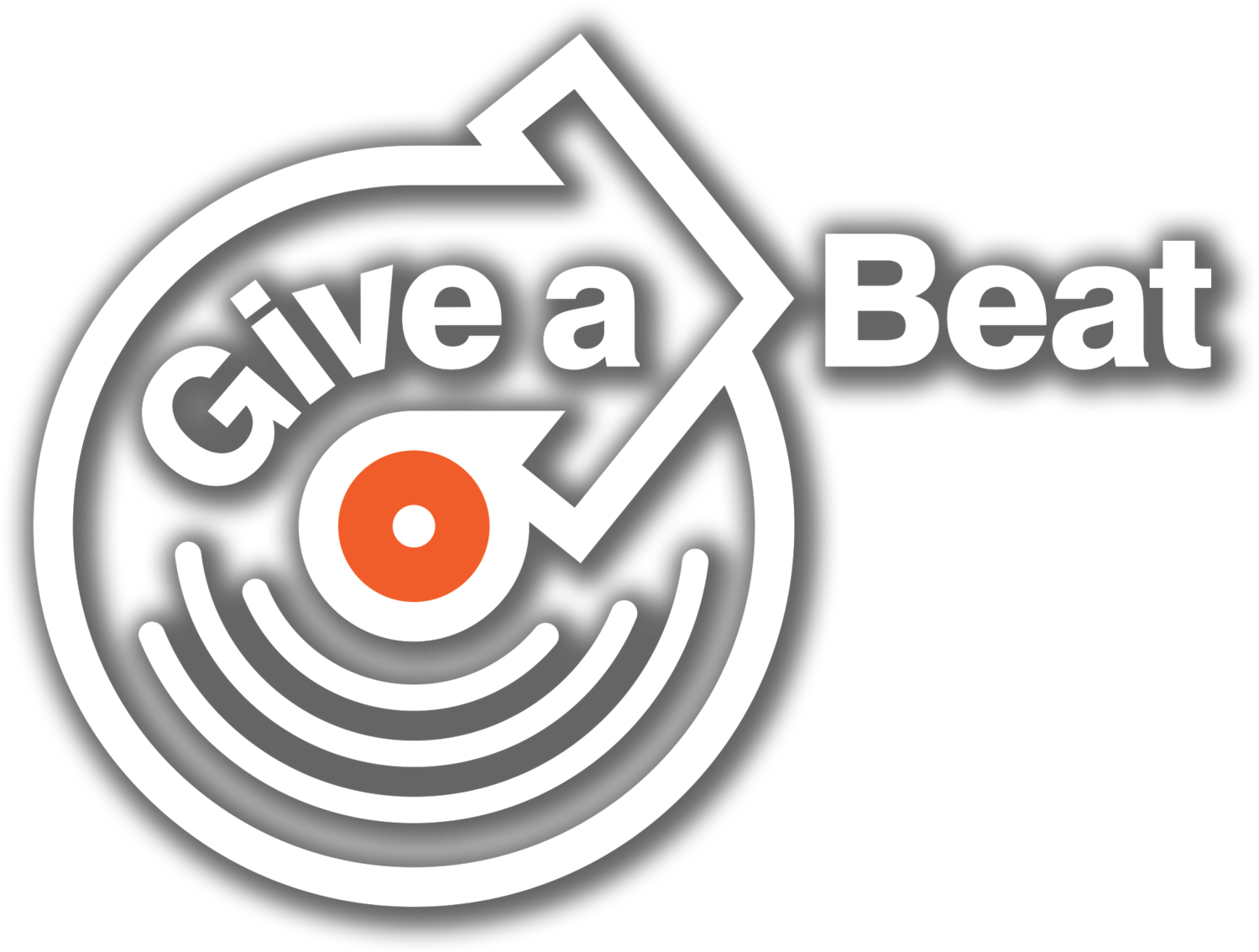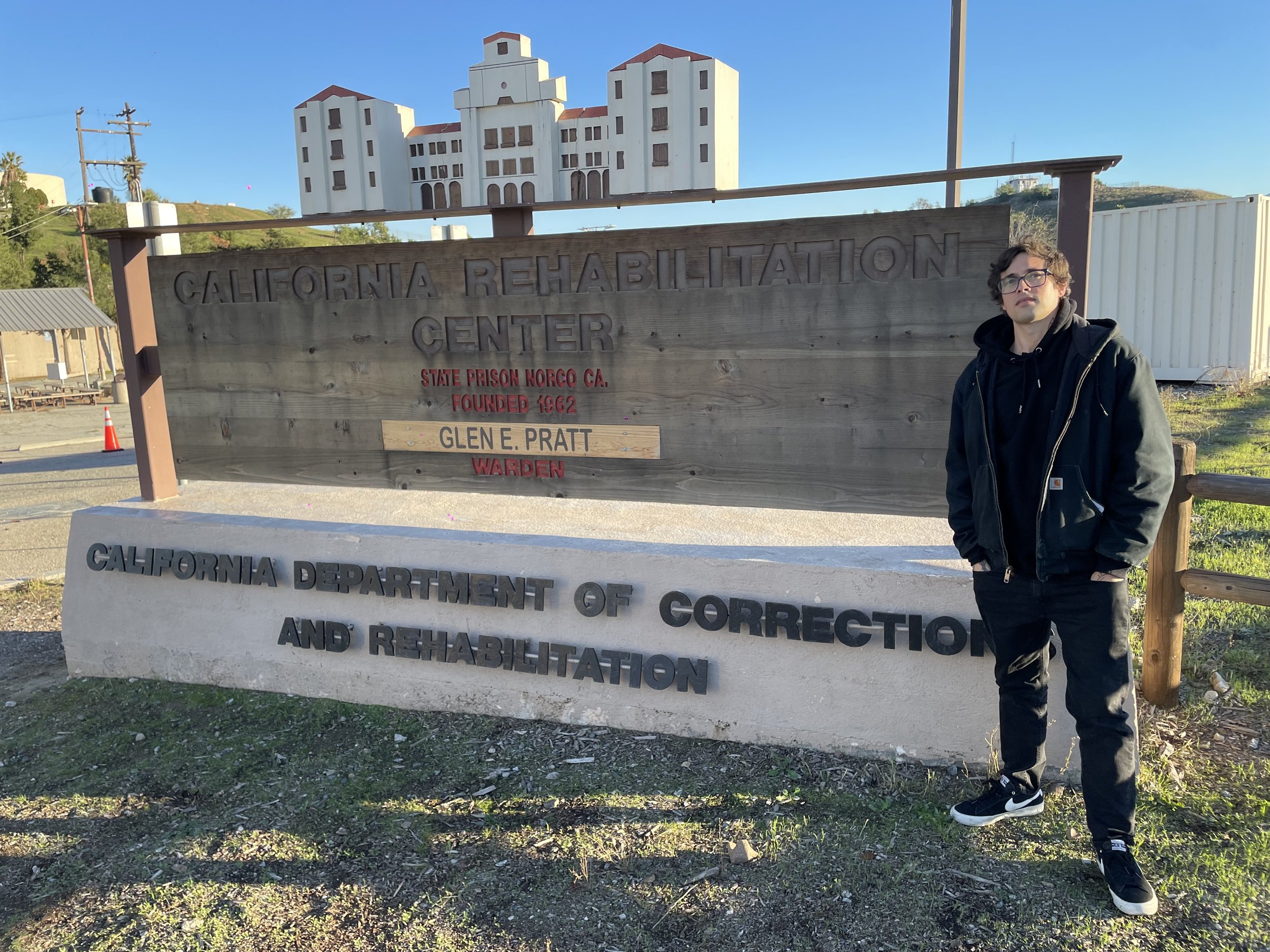The Beat Within: LA Music producer Caleb Stone's Inspiring Visit to the Prison Electronic Music Program with Give a Beat
Music has an incredible power to heal, inspire, and transform lives. For music producer Caleb Stone, this power became evident during his visit to the Prison Electronic Music Program with Give a Beat. Based in Los Angeles, Stone–who’s composed beats for top-tier talents like Khalid, Ski Mask The Slump God, iLoveMakonnen, Mac Miller, Syd, Denzel Curry– had the opportunity to work with incarcerated individuals and witness firsthand the impact that music can have on their lives.
Stone first heard about Give a Beat through his collaboration with Spiñorita on various electronic music projects. Intrigued by the concept of using music as a means of rehabilitation and healing, Stone eagerly joined the program. Reflecting on his experience, Stone remarked, "It was a really great experience, and I would happily do it again. I love teaching, but it's difficult to find an avenue."
During his time working with the participants, Stone was awed by their talent and creativity despite limited time and resources. The experience viscerally illustrated how music could transcend boundaries and serve as an outlet for self-expression.
“It was really crazy to see how talented and skilled the participants were at making music with such limited time and resources. Sixteen individuals were expressing their purest forms of creativity through music, which was truly amazing.” - Caleb Stone
Participating in the program deeply influenced Stone's perspective on the role of music in rehabilitation. As someone who personally uses music as a safe haven, he recognizes its potential to keep individuals grounded and out of trouble. He believes it is crucial to demonstrate to at-risk youth that there are enjoyable hobbies that do not lead to negative consequences.
Expanding on this idea, Stone suggested that providing more time and access to equipment for incarcerated populations would be ideal. With ample time on their hands, they could develop industry-level skills while serving their sentences and leave prison with a career already established.
When asked about positive changes or evolutions he observed among participants as a result of their involvement in the program, Stone shared one person's remark: "I think I have a new hobby. I genuinely enjoy doing this." This simple statement speaks volumes about how programs like Give a Beat's Prison Electronic Music Program can make a significant difference in reducing recidivism rates.
Stone firmly believes that anyone can find peace through creating music. It holds great meaning in his own life—serving as both a coping mechanism for trauma and an escape into self-constructed worlds where external influences hold no sway.
“I have found a lot of meaning in music in my life. I believe that anyone can find peace in creating music. It is one of the most incredible feelings to bring something to life from your own thoughts. It's magical. I also think that music has the power to inspire hope. Personally, I wouldn't be here today if it weren't for music. For those who are feeling more desperate, it can be even more transformative.”
- Caleb Stone
Furthermore, Stone's artistic journey took a spirited turn after collaborating with Give a Beat. The experience left him with an undeniable urge to dedicate more time to teaching others about music production. Having mentored aspiring producers before, he realized that creating avenues for aspiring talent is essential.
Driven by this realization, Stone plans to create a public online stream where he can teach and mentor more people interested in music production—an initiative aimed at empowering individuals who may not have easy access or resources for such learning opportunities.
When asked what advice he would give other artists interested in getting involved with Give a Beat or similar endeavors, Stone adamantly urged them to go for it: “There’s limited ways to use music for philanthropic purposes. This is as good as it gets. Music holds great meaning in my life. It serves as a coping mechanism to help me deal with trauma. When I create music, I have the power to construct my own world and exert control over every aspect of it. I become the one who determines how external factors influence me in my everyday life.”
He explained how creating personal worlds within his compositions helps him navigate everyday life while maintaining control over external influences—a power he believes everyone can tap into by exploring music creation as an avenue for self-expression.
Delving deeper into his musical journey, Stone revealed how he first got into production after playing in bands without achieving success as a career path. Attending a Hip Hop/Rap showcase in Leimert Park introduced him to friends called The Internet (R&B), who taught him producing techniques—and from there emerged his passion for making beats independently.
Stone highlighted technology's role in modern music’s rapid advancement—breaking barriers between right and wrong approaches to creating sounds. Now, even smartphones serve as tools for producing tracks and accessibility has accelerated with online digital audio workstations like Soundtrap enabling anyone passionate about making music to fully participate.
Like any artist forging their path forward creatively and professionally (in any field), Stone faced challenges along his journey as well—from legitimizing and monetizing his work initially—to managing time effectively within an industry notorious for demanding ceaseless effort while stepping out of one's comfort zone.
To stay motivated and inspired as a producer amidst these challenges, Stone revealed that an abundant intake of different genres kept him musically healthy: “The trick to staying motivated and inspired is listening to music. You have to have a healthy nutritious diet of music to be musically healthy. Constantly eat lots of exciting stuff that you are enthusiastic for. You'll never get bored listening to exciting stuff.” says Stone encouragingly.
As Stone reflects upon memorable moments from his career—a moment when he first heard himself on NPR—his most impactful memory stands out clearly: "It felt like I had been transported somewhere else." Acknowledging moments worth savoring truly stood out from our conversation—a reminder that celebrating accomplishments is essential yet often overlooked amidst creative journeys filled with countless milestones both big and small.
Stone's visit to the Prison Electronic Music Program with Give a Beat left an enduring effect on both himself and the participants involved—their overall aim being reducing recidivism rates among incarcerated individuals through fostering talent development opportunities via electronic music programs like this one organized by Give a Beat.
During our conversation, Stone shared insights about his experience in the program. We learned how exposure to creative endeavors can be life-changing. We also saw firsthand how dedicating oneself to nurturing artistic talents while incarcerated brings invaluable enrichment and hope, particularly through music. Please make sure to read more about the Prison Electronic Music Program to delve deeper into Stone's transformative journey and the impact of nurturing artistic talents in carceral settings.
“If you have a chance to support this program, write a letter or donate to Give a Beat. It can have a significant impact on making prisons actually rehabilitative. I was amazed that it existed. This initiative needs to grow, and it should be happening.”
- Caleb Stone

